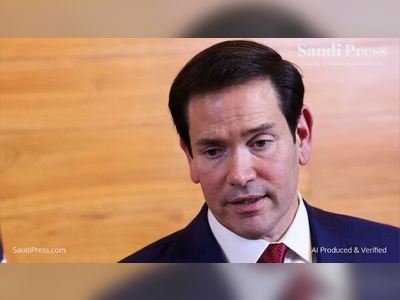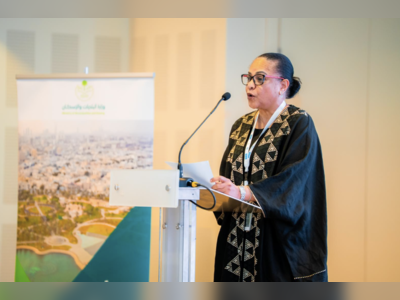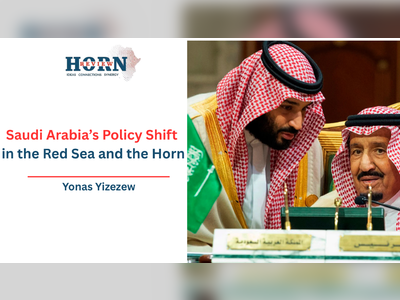
Innovation can supercharge Kuwait Vision 2035
As Kuwaiti policymakers make efforts to diversify the oil-based economy into a high-value-added, knowledge-based one, increasing the rate of public and private sector R&D represents a strategic opportunity to fulfill Vision 2035. These efforts should see more investment in R&D which stood at 0.2% of GDP in 2020, according to the World Bank.
Kuwait has demonstrated a readiness to embrace innovation. The national energy giant Kuwait Oil Company has established the Kuwait International Petroleum Research Center (KIPRC), a significant effort to provide applied research and technology solutions to the Kuwait Oil Sector for Upstream operations.
The 2021 Global Innovation Index shows that Kuwait performs equally in innovation inputs and outputs. The country performs above the regional average in two pillars: Infrastructure, Knowledge and technology. Although Kuwait should pursue an innovation strategy based on local priorities, there are great lessons to be learned from other countries, particularly China, which demonstrates innovation can deliver long-term economic growth and build a globally competitive and resilient economy. Today China leads the world in R&D and innovation in advanced technologies like AI and 5G.
As a result, China is quickly closing the once-formidable lead the West, particularly the US, had on AI research. Chinese researchers now publish more papers on AI and secure more patents than their U.S. counterparts and the country is poised to become a leader in AI-powered enterprises. China also accounted for nearly one-fifth of global private investment funding in 2021, attracting $17 billion for AI startups. The focus on startups relates to Kuwait, which is now home to a thriving startup scene. In just the past year, startups justclean, Floward and Raha have raised $6 million, $27.5 million and $6.7 million in funding, respectively.
5G technologies is another area that China has taken global lead. China is home to the world’s most extensive 5G mobile infrastructure, with 1.43 million 5G base stations installed as of 2021, accounting for over 60% of the global total. As a result, the Chinese mobile ecosystem has become a critical driver of 5G evolution globally. The country is also set to lead the next-generation 6G evolution. Just as 5G began rolling out in 2019, China announced a 6G strategy, even before industry standards or definitions had been established. A report by Nikkei shows that China topped the list with 40.3% of 6G patent filings, well ahead of the U.S. with 35.2%.
Kuwait launched the region’s first commercial 5G service in 2019. Operators have since rolled out the region’s first commercial deployment of advanced 5G technologies to enable better 5G indoor customer reach and additional 5G capacity to cater to the unexpected 30% surge in traffic during and after the pandemic. Kuwait can leverage its regional leadership in 5G networks to explore innovation in advanced ICT systems. At Mobile World Congress this year, Zain Group signed a deal with Huawei to accelerate the migration from 4G to 5G, including 5.5G innovation to enrich the customer experience across multiple markets, including Kuwait.
Both public and private sectors play an equally vital role in supporting R&D. An excellent example of China’s focus on innovation lead by R&D is Huawei, a Chinese yet global company that demonstrates the direct link between R&D and innovation. The company ranked second in the 2021 EU Industrial R&D Investment Scoreboard. In 2021, Huawei had about 107,000 employees, representing approximately 54.8% of the entire workforce, working in R&D. Today, Huawei maintains one of the largest patent portfolios globally; by 2021, Huawei held more than 110,000 active patents across over 45,000 families. These ratings are the result of Huawei’s R&D expenditure totaled $22.4 billion in 2021, representing 22.4% of total revenue and bringing its total R&D expenditure over the past ten years to over $132.5 billion.
This focus on R&D has resulted in Huawei taking the lead in 5G development. Between 2009 and 2013, the company invested more than $600 million into 5G technology research, followed by a further $1.4 billion into 5G product development in 2017 and 2018. As a result, Huawei 5G network RAN portfolio was ranked a leader for the third year in a row in GlobalData’s H2 2021 report. In 6G Rotating Chairman Eric Xu announced last year that Huawei plans to launch its 6G networks in 2030.
Learning from leading examples like China and its partnership with global ICT leaders such as Huawei can support Kuwait’s innovation efforts. Earlier this year, the Kuwait College of Science and Technology (KCST) signed up to host the first Huawei 5G Lab and 5G Star super simulation training system in Kuwait as part of the newly-launched Huawei ICT Academy at KCST. The advanced training will boost the expansion of 5G networks across the country and facilitate new business models, helping support Kuwait’s digital transformation in line with Kuwait Vision 2035.
Research and development also help create new business models. For Huawei, R&D has nurtured new business units such as Huawei Digital Power, which integrates digital and power electronics technologies, developing clean power, enabling energy digitalization and a carbon neutrality drive to power energy revolution for a better, greener future. In addition, HUAWEI CLOUD is today the fastest-growing cloud services provider in the world, and has attracted 2.6 million developers.
And now, this innovation is available to Kuwait organizations. The Communication and Information Technology Regulatory Authority (CITRA) has granted permission to HUAWEI CLOUD to offer cloud services in Kuwait as the GCC country pursues a cloud-first policy. With the new development, Huawei will deliver innovative cloud services to support Kuwait’s 2035 vision, which seeks to create a diversified, sustainable economy.
Following in the footsteps of the Chinese government’s inspiring efforts to nurture startups, Huawei announced the launch of a new startup support program in the region last year, Spark Program. The initiative has plans to invest $15 million over the following three years to accelerate the development of technology enterprises and ecosystems in the Middle East.
Innovation is also crucial to budling resilient economies, particularly in an era of unprecedented global disruptions. It has enabled China to circumvent a US-led geopolitically-driven campaign to isolate Chinese firms from the global technology market. China’s public and private sectors enterprises responded to the challenge by pursuing technology self-sufficiency, particularly in semiconductors. China is the world’s largest importer of chipsets. However, last year saw Chinese imports of integrated circuits (I.C.s) shrink 9.6% in volume in Q1 of 2022 from a year ago, according to Chinese customs data, reversing a 33.6% increase in the same period in 2021. The reduction in import volume mainly comes from China’s relentless push toward technological self-sufficiency. The fourth industrial revolution has only begun and the technologies that will define this era are only emerging. Therefore, Kuwait has an opportunity to stake its claim in this crucial field to deliver the socio-economic objectives of Vision 2035 by leveraging its world-class ICT infrastructure, talented population and substantial financial resources to spearhead an R&D revolution.
The 2021 Global Innovation Index shows that Kuwait performs equally in innovation inputs and outputs. The country performs above the regional average in two pillars: Infrastructure, Knowledge and technology. Although Kuwait should pursue an innovation strategy based on local priorities, there are great lessons to be learned from other countries, particularly China, which demonstrates innovation can deliver long-term economic growth and build a globally competitive and resilient economy. Today China leads the world in R&D and innovation in advanced technologies like AI and 5G.
As a result, China is quickly closing the once-formidable lead the West, particularly the US, had on AI research. Chinese researchers now publish more papers on AI and secure more patents than their U.S. counterparts and the country is poised to become a leader in AI-powered enterprises. China also accounted for nearly one-fifth of global private investment funding in 2021, attracting $17 billion for AI startups. The focus on startups relates to Kuwait, which is now home to a thriving startup scene. In just the past year, startups justclean, Floward and Raha have raised $6 million, $27.5 million and $6.7 million in funding, respectively.
5G technologies is another area that China has taken global lead. China is home to the world’s most extensive 5G mobile infrastructure, with 1.43 million 5G base stations installed as of 2021, accounting for over 60% of the global total. As a result, the Chinese mobile ecosystem has become a critical driver of 5G evolution globally. The country is also set to lead the next-generation 6G evolution. Just as 5G began rolling out in 2019, China announced a 6G strategy, even before industry standards or definitions had been established. A report by Nikkei shows that China topped the list with 40.3% of 6G patent filings, well ahead of the U.S. with 35.2%.
Kuwait launched the region’s first commercial 5G service in 2019. Operators have since rolled out the region’s first commercial deployment of advanced 5G technologies to enable better 5G indoor customer reach and additional 5G capacity to cater to the unexpected 30% surge in traffic during and after the pandemic. Kuwait can leverage its regional leadership in 5G networks to explore innovation in advanced ICT systems. At Mobile World Congress this year, Zain Group signed a deal with Huawei to accelerate the migration from 4G to 5G, including 5.5G innovation to enrich the customer experience across multiple markets, including Kuwait.
Both public and private sectors play an equally vital role in supporting R&D. An excellent example of China’s focus on innovation lead by R&D is Huawei, a Chinese yet global company that demonstrates the direct link between R&D and innovation. The company ranked second in the 2021 EU Industrial R&D Investment Scoreboard. In 2021, Huawei had about 107,000 employees, representing approximately 54.8% of the entire workforce, working in R&D. Today, Huawei maintains one of the largest patent portfolios globally; by 2021, Huawei held more than 110,000 active patents across over 45,000 families. These ratings are the result of Huawei’s R&D expenditure totaled $22.4 billion in 2021, representing 22.4% of total revenue and bringing its total R&D expenditure over the past ten years to over $132.5 billion.
This focus on R&D has resulted in Huawei taking the lead in 5G development. Between 2009 and 2013, the company invested more than $600 million into 5G technology research, followed by a further $1.4 billion into 5G product development in 2017 and 2018. As a result, Huawei 5G network RAN portfolio was ranked a leader for the third year in a row in GlobalData’s H2 2021 report. In 6G Rotating Chairman Eric Xu announced last year that Huawei plans to launch its 6G networks in 2030.
Learning from leading examples like China and its partnership with global ICT leaders such as Huawei can support Kuwait’s innovation efforts. Earlier this year, the Kuwait College of Science and Technology (KCST) signed up to host the first Huawei 5G Lab and 5G Star super simulation training system in Kuwait as part of the newly-launched Huawei ICT Academy at KCST. The advanced training will boost the expansion of 5G networks across the country and facilitate new business models, helping support Kuwait’s digital transformation in line with Kuwait Vision 2035.
Research and development also help create new business models. For Huawei, R&D has nurtured new business units such as Huawei Digital Power, which integrates digital and power electronics technologies, developing clean power, enabling energy digitalization and a carbon neutrality drive to power energy revolution for a better, greener future. In addition, HUAWEI CLOUD is today the fastest-growing cloud services provider in the world, and has attracted 2.6 million developers.
And now, this innovation is available to Kuwait organizations. The Communication and Information Technology Regulatory Authority (CITRA) has granted permission to HUAWEI CLOUD to offer cloud services in Kuwait as the GCC country pursues a cloud-first policy. With the new development, Huawei will deliver innovative cloud services to support Kuwait’s 2035 vision, which seeks to create a diversified, sustainable economy.
Following in the footsteps of the Chinese government’s inspiring efforts to nurture startups, Huawei announced the launch of a new startup support program in the region last year, Spark Program. The initiative has plans to invest $15 million over the following three years to accelerate the development of technology enterprises and ecosystems in the Middle East.
Innovation is also crucial to budling resilient economies, particularly in an era of unprecedented global disruptions. It has enabled China to circumvent a US-led geopolitically-driven campaign to isolate Chinese firms from the global technology market. China’s public and private sectors enterprises responded to the challenge by pursuing technology self-sufficiency, particularly in semiconductors. China is the world’s largest importer of chipsets. However, last year saw Chinese imports of integrated circuits (I.C.s) shrink 9.6% in volume in Q1 of 2022 from a year ago, according to Chinese customs data, reversing a 33.6% increase in the same period in 2021. The reduction in import volume mainly comes from China’s relentless push toward technological self-sufficiency. The fourth industrial revolution has only begun and the technologies that will define this era are only emerging. Therefore, Kuwait has an opportunity to stake its claim in this crucial field to deliver the socio-economic objectives of Vision 2035 by leveraging its world-class ICT infrastructure, talented population and substantial financial resources to spearhead an R&D revolution.











